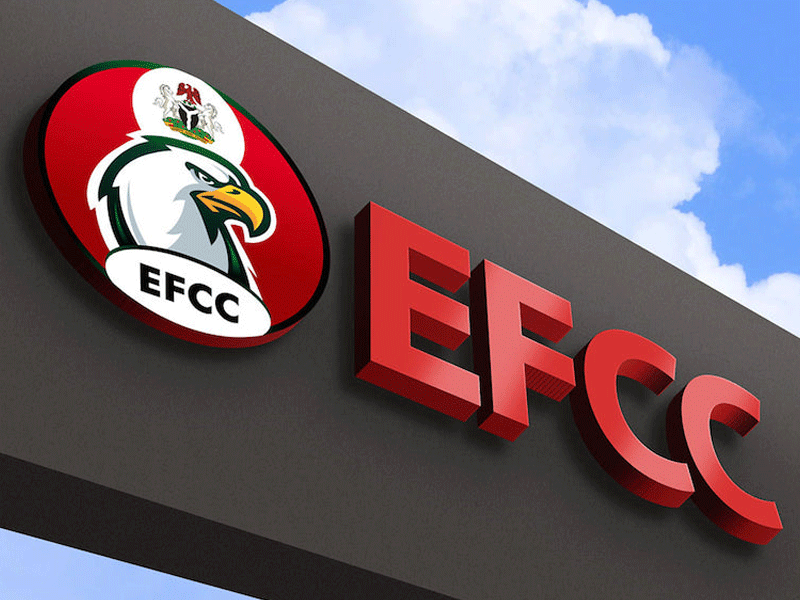The Economic and Financial Crimes Commission (EFCC), has announced the recovery of the largest single asset from a government official since the creation of the agency by the Olusegun Obasanjo administration in 2003.
The multi-billion naira asset according to the anti-graft agency comprise “an estate in Abuja measuring 150,500 square metres and containing 753 Units of duplexes and other apartments.”
In a statement shared on its official X handle on Monday evening, the anti-graft agency stated that the recovery of the property was consequent upon a the ruling of Justice Jude Onwuegbuzie of the Federal High Court Abuja which ordered a final forfeiture of the property to the Federal Government of Nigeria.
According to the EFCC, the forfeiture of the property was in line with Section 17 of the Advance Fee Fraud And Other Fraud Related Offences Act No 14, 2006 and Section 44 (2) B of the Constitution of the 199 Constitution of the Federal Republic of Nigeria.
Though the EFCC did not name the government official that the property was recovered from, it, however, described the owner as a “top government official” that is currently being prosecuted for fraudulent enrichment while in high government office.
The EFCC statement reads in part:
“Justice Jude Onwuegbuzie, on Monday, December 2, 2024 gave a ruling on a final forfeiture of an estate in Abuja measuring 150,500 square metres and containing 753 Units of duplexes and other apartments. This is the single largest asset recovery by the Economic and Financial Crimes Commission, EFCC, since its inception in 2003. The Estate rests on Plot 109 Cadastral Zone C09, Lokogoma District, Abuja.

“The forfeiture of the property to the federal government by a former top brass of the government was pursuant to EFCC’s mandate and policy directive of ensuring that the corrupt and fraudulent do not enjoy the proceeds of their unlawful activities. In this instance, the Commission relied on Section 17 of the Advance Fee Fraud And Other Fraud Related Offences Act No 14, 2006 and Section 44 (2) B of the Constitution of the 199 Constitution of the Federal Republic of Nigeria to push its case.
“Ruling on the Commission’s application for the final forfeiture of the property, Justice Onwuegbuzie held that the respondent have not shown cause as to why he should not lose the property, “which has been reasonably suspected to have been acquired with proceeds of unlawful activities, the property is hereby finally forfeited to the federal government.”
“The road to the final forfeiture of the property was paved by an interim forfeiture order, secured before the same Judge on November 1, 2024. The government official which fraudulently built the estate is being investigated by the EFCC. The forfeiture of the asset is an important modality of depriving the suspect of the proceeds of the crime.
“The justification for the forfeiture is derived from Part 2, Section 7 of the EFCC Establishment Act, which stipulates that the EFCC “has power to cause investigations to be conducted as to whether any person, corporate body or organization has committed any offence under this Act or other law relating to economic and financial crimes and cause investigations to be conducted into the properties of any person if it appears to the Commission that the person’s lifestyle and extent of the properties are not justified by his source of income.”
“The Commission’s Executive Chairman, Mr. Ola Olukoyede, has repeatedly described asset recovery as pivotal in the fight against corruption, economic and financial crimes and a major disincentive against the corrupt and the fraudulent.
“Addressing members of the House of Representatives Committee on Anti-corruption recently, he said, “If you understand the intricacies involved in financial crimes investigation and prosecution you will discover that to recover one billion naira is war. So, I told my people that the moment we start investigation we must also start asset tracing because asset recovery is pivotal in the anti-corruption fight; and one of the potent instruments that you can deploy as an anti-corruption agency for an effective fight is asset tracing and recovery. If you allow the corrupt or those that you are investigating to have access to the proceeds of their crime, they will fight you with it. So one of the ways to weaken them is to deprive them of the proceeds of their crime. So, our modus operandi has changed simultaneously. The moment we begin investigation, we begin asset tracing. That was what helped us to make our recoveries.”


